
Lubec Exhibit
Lubec Exhibit + Soundwalk
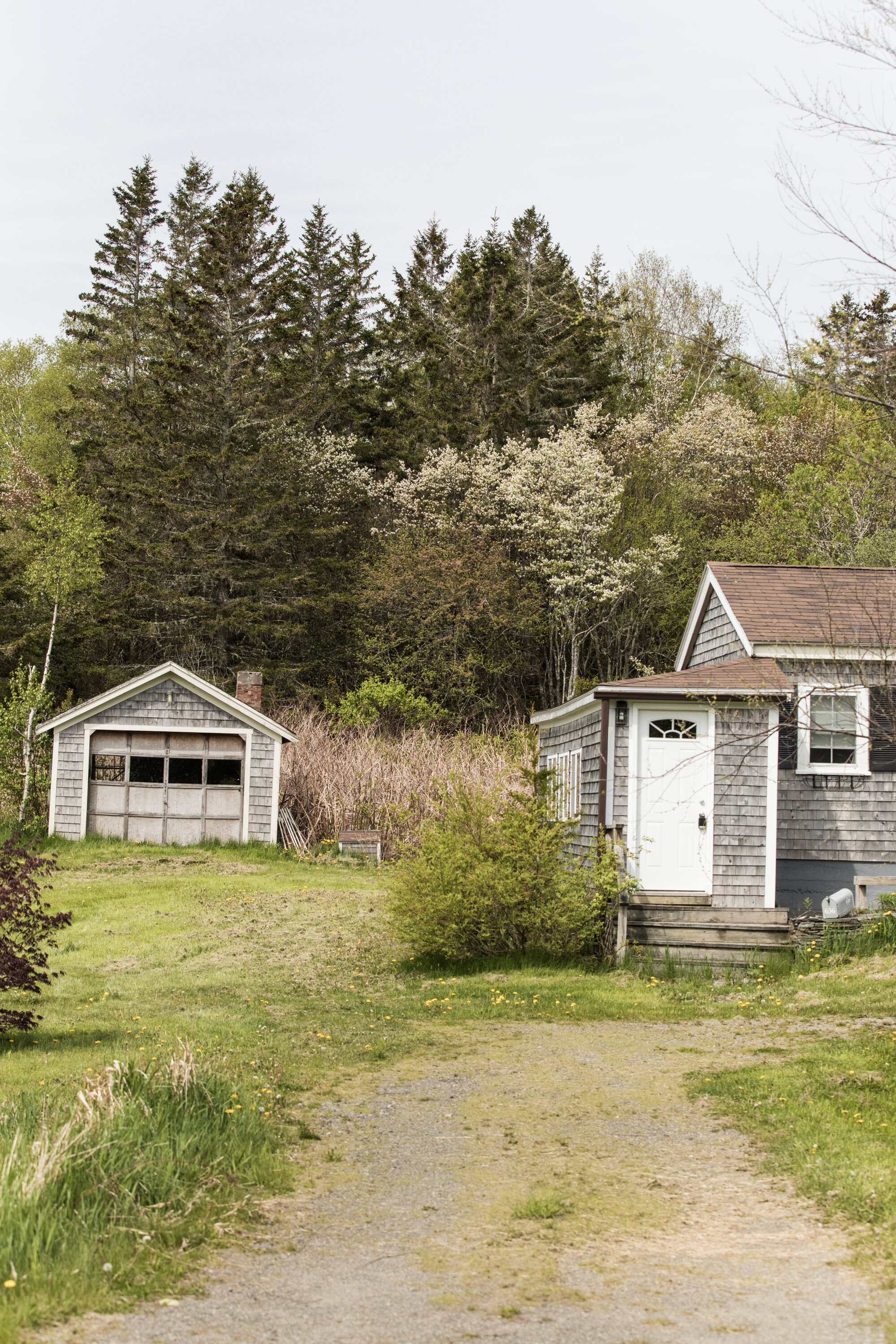
“There's nothing like this area and the people. I think they're just so sincere. If you're young and you're building a home and you're starting something, people drive by and they come in and they say, "Can I help you get those frames up? Can I help you run that concrete?" That's the way we are here, we help each other.”
Wendell Small, Whiting
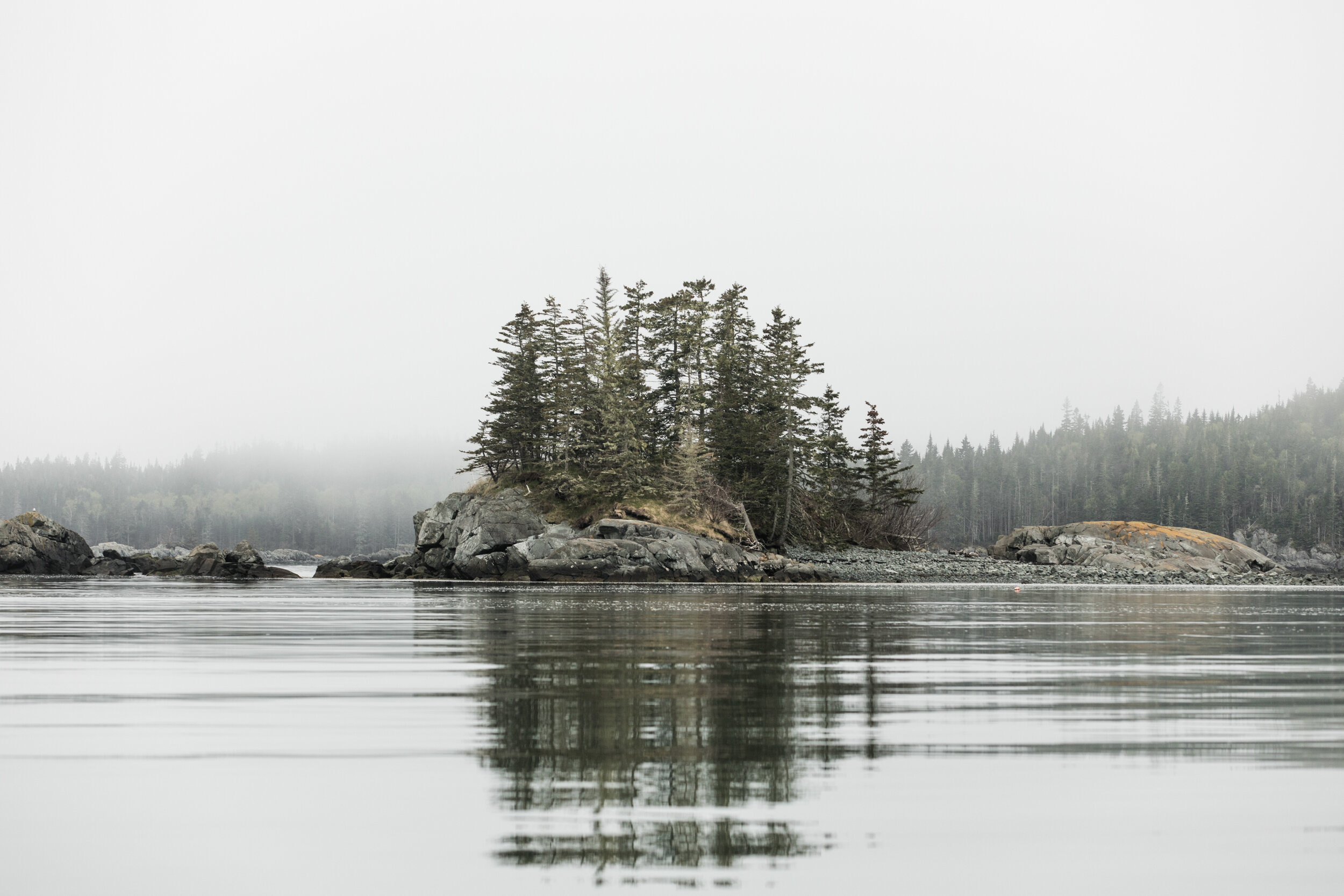
“When I was younger, I grew up in North Lubec, you knew everybody. Christ! We used to have, I don't know how many, kids up there having fun and everything. I used to mow lawns, my father owned a blueberry land up the road here, we used to rake blueberries for our clothes for school. We just didn't get free money, we all worked and raked berries and all that. I worked in the hen house, I worked clamming, with my father. My father dug clams in the beginning and also kept wood, so you learned all this stuff growing up and you knew everybody.” George “Bubba” Eaton, Lubec

“It's hard for me to speak to because I'm “From Away...” The only culture I've experienced is Washington County culture… This place is pretty unique even within Maine. There is an identity and a community and togetherness as well as an independence... a sense of self-sustainability. That's part of this whole damn thing and I'm very drawn to that and it's been enough to keep me here for a year at this point. I'm a pretty impulsive, rambling kind of person so I feel like that says something.” Riley Callow, Edmunds

“Most of the people who come up here as "visitors" or "tourists" are coming up here because it's off the beaten path and they want to go hiking on quiet trails, they want to walk a beach where they're the only one on it, they want to be able to go out in a boat and not see wall-to-wall houses and they want to sit down in a place like this and have a conversation with someone they've never met that's a real conversation.” McGinley Jones, Lubec
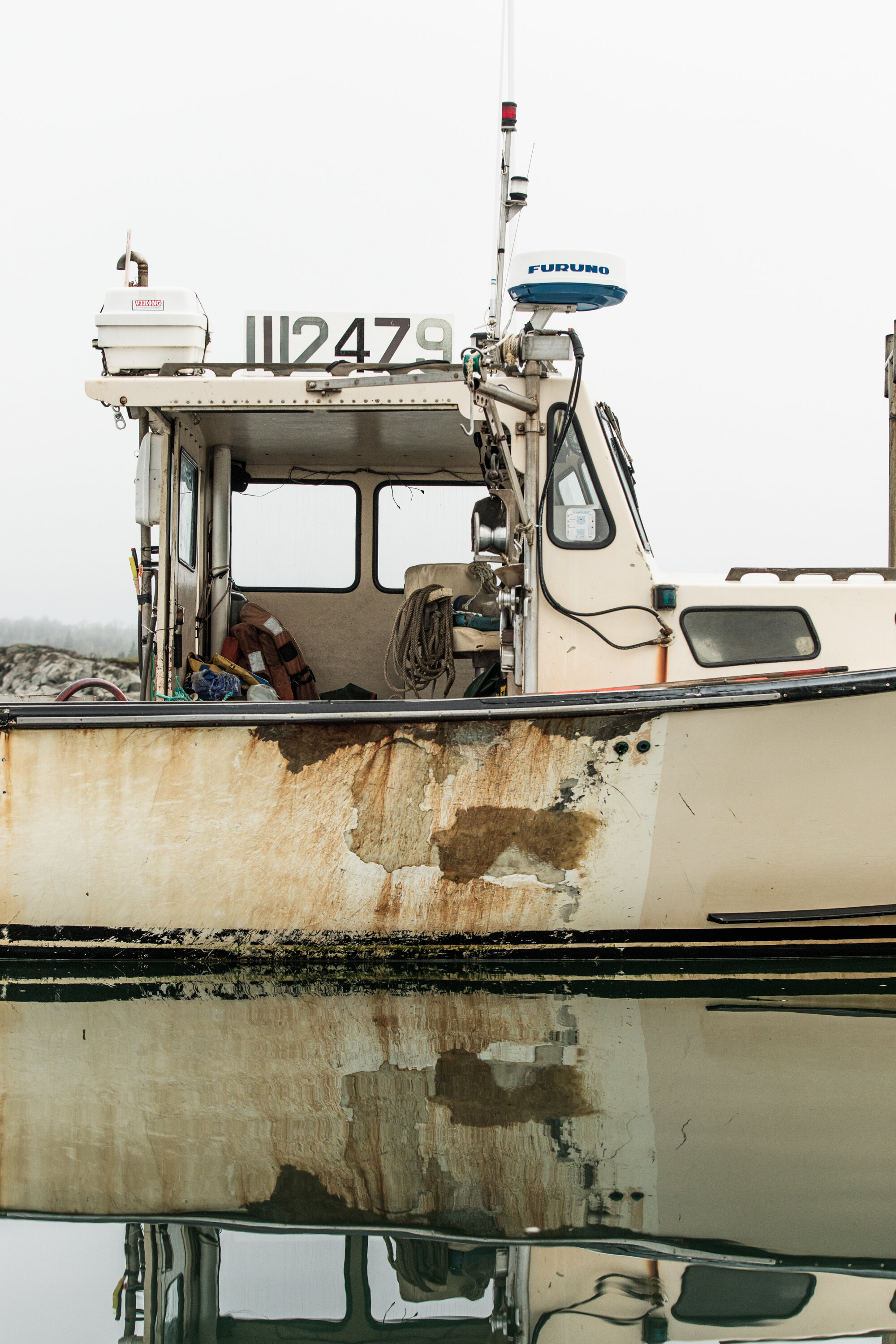
“It's a tougher fishery here I think than it is down the coast. A lot of guys here don't fish the winter because they just can't physically get to enough traps when the lobsters are really moving. If you don't tend to them it's just a waste of effort and money to put them in.”
Bob Peacock, Eastport/Lubec

“There used to be a lot of weirs down the coast of Maine. As a young person, in high school, I had a small boat with a few lobster boats and the weir fishermen were working all around and caught my interest, so I got the chance to work a little bit with them. It’s a very stationary type of fishing, you can’t go get the fish. They either come to you, or they don’t. More modern day types of fishing they can chase the herring just about anywhere where as [weir fishing] depended on the luck of having them come into us. Today I don’t know of any weirs on the Maine coast anywhere, I think they’re pretty much all gone.” David Pressley, Lubec
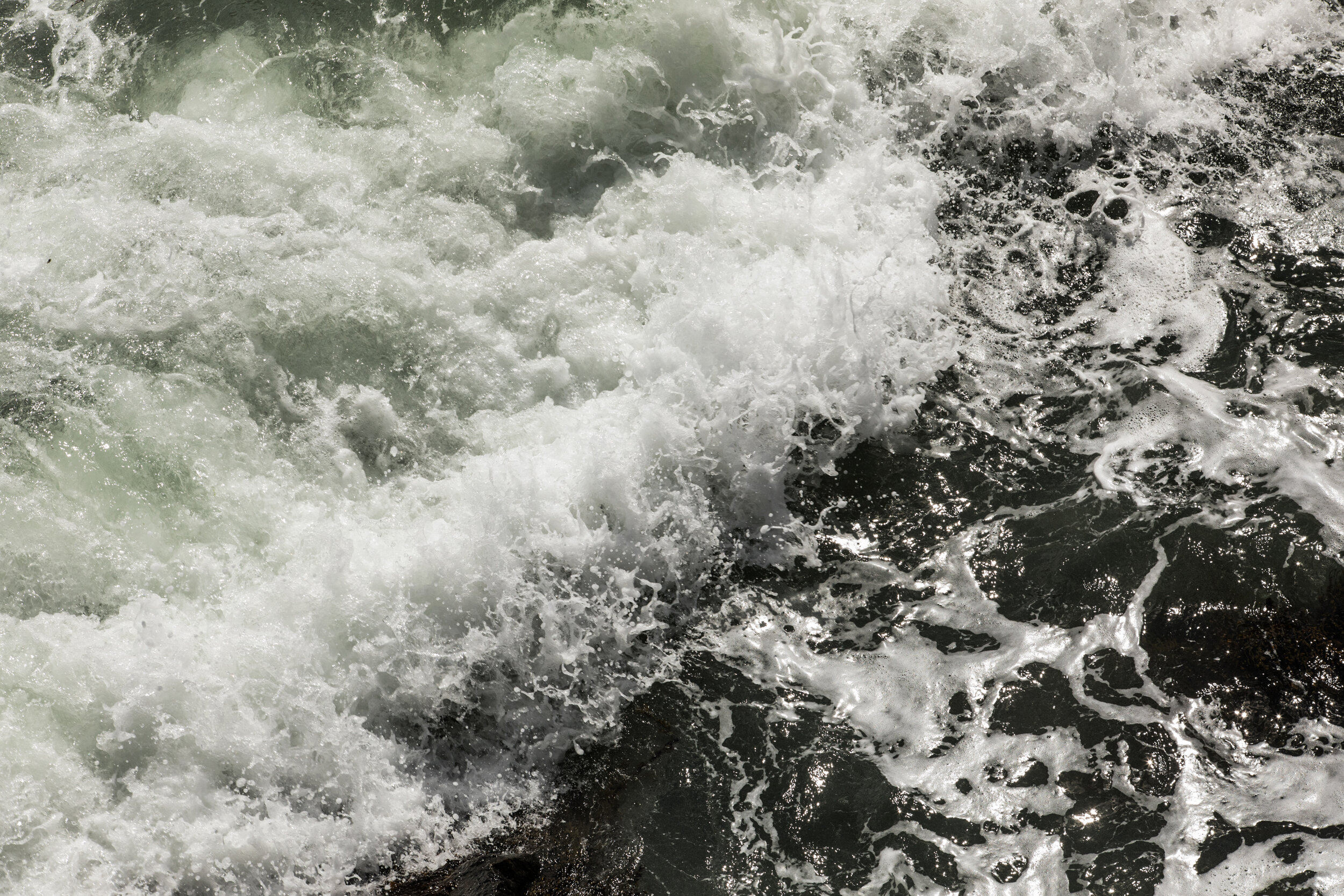
“The tides are so powerful, they come and go and it's quick. You know they're very powerful you either work with 'em or against 'em as fishermen and it just takes a lot of skill. When you're there and the tide turns and you're not ready for it, you could be up to your ears in trouble, there's a lot of knowledge for the fishermen to have to be out there in these huge tides.” Shelly Tinker, Lubec
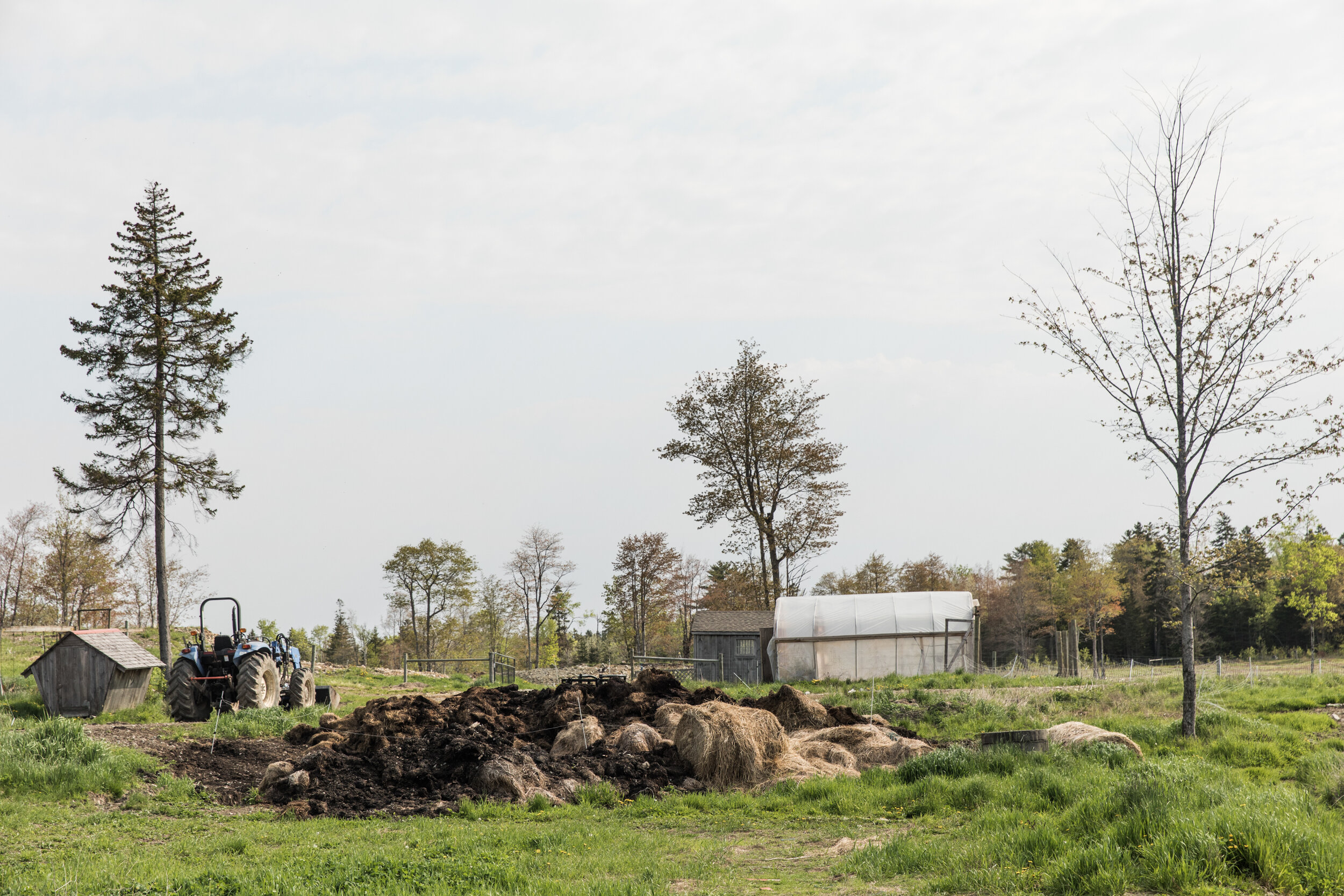
“Tourism has always been a big part of Lubec. In the winter time there's just nothing here for the locals, our restaurants mostly close after September. Our fisheries, that is the number one thing, tourism is always in the background, but tourism can only last four months. And the four months that it does last, it's a boom here for sure, our population doubles. The restaurants flourish, your stores flourish, your gas station... but I think we just need to have some year-round work other than the fisheries. The fisheries and the seasonal, you have your clammers, you have your blueberry rakers, but we just need a main industry that would keep people working.”
Joanne Case, Lubec
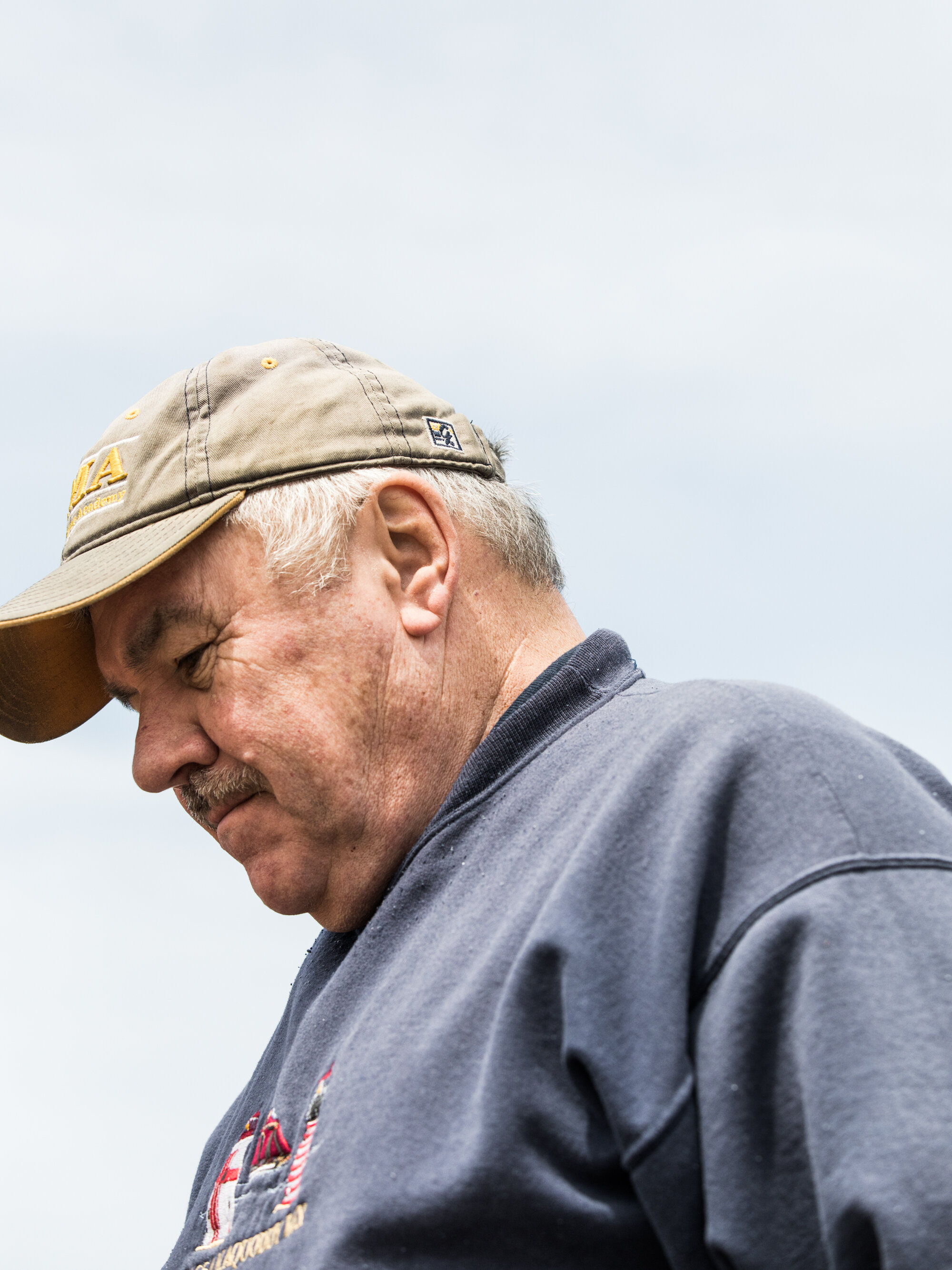
Bob Peacock, Eastport Harbor Pilot
“I love being on the water, lake or ocean, either one. It's nice to wake up and see the water. I go to New York and other places, I don't like being in the city, I really don't. It's fun to visit for a few days or go to a show or something but it's not like getting up here every morning, it's heaven, being on the water. As my pilot boat captain Ralph DeWitt once said, "My worst day on the water is better than your best day in a cubical somewhere." There's some truth in that, I'll tell yah. There really is.”
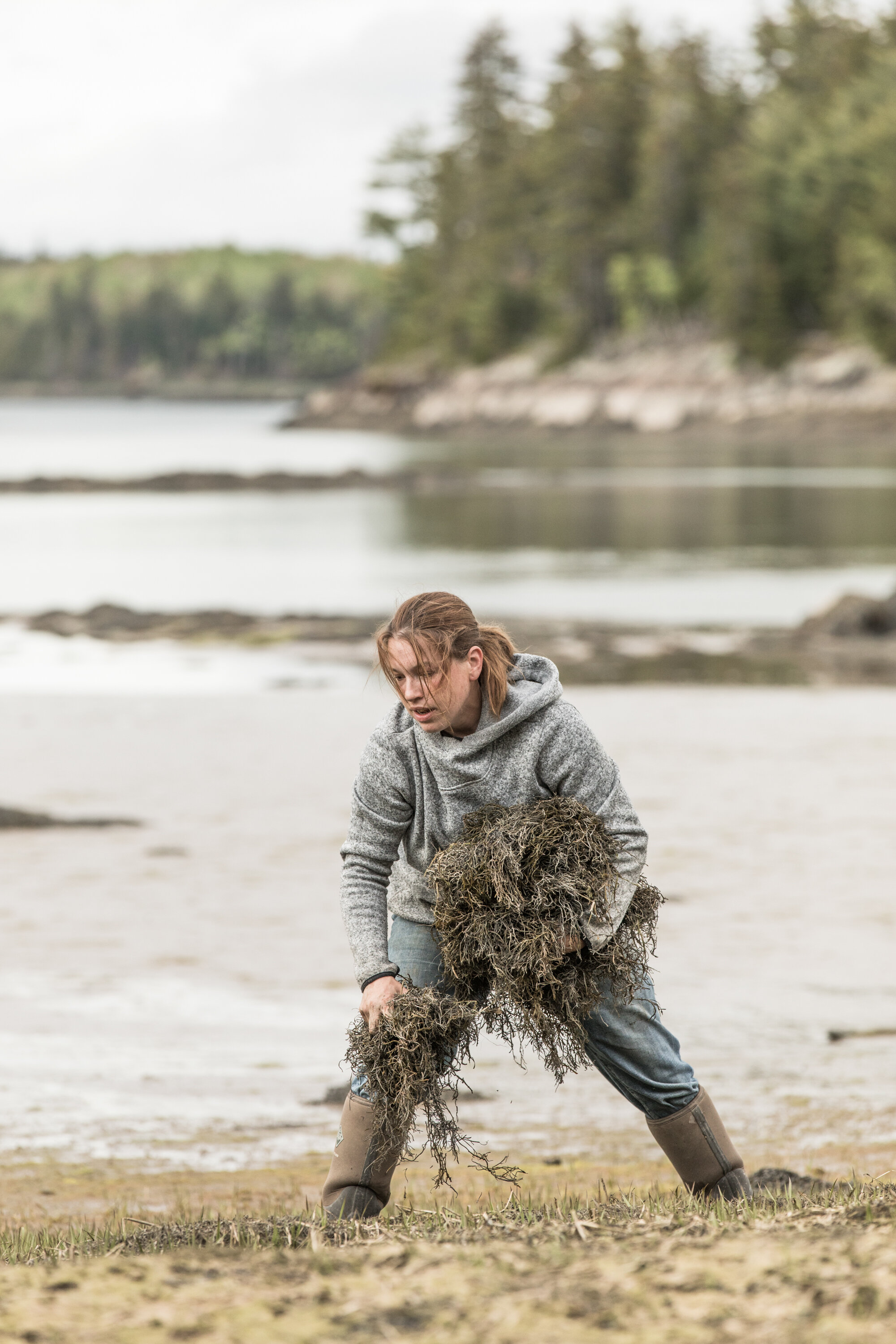
Amanda Lyons Harvesting Wormweed in Trescott
“I am a digger so I can still look at the research, still understand the digger's side of it and then understand that I have thousands of acres of clam flats of all different kinds, sand, rock, clay, mud. I got issues with predators, I got issues with landowners, I got issues with access slowly disappearing for our commercial diggers. Whether it was an access that was just by the previous landlord or an access that has been there publicly for the last 25 years, turn around and say "Well I don't want you on my land." And there's nothing to protect the digger, nothing. And the only rule that can protect the digger is by boat.”
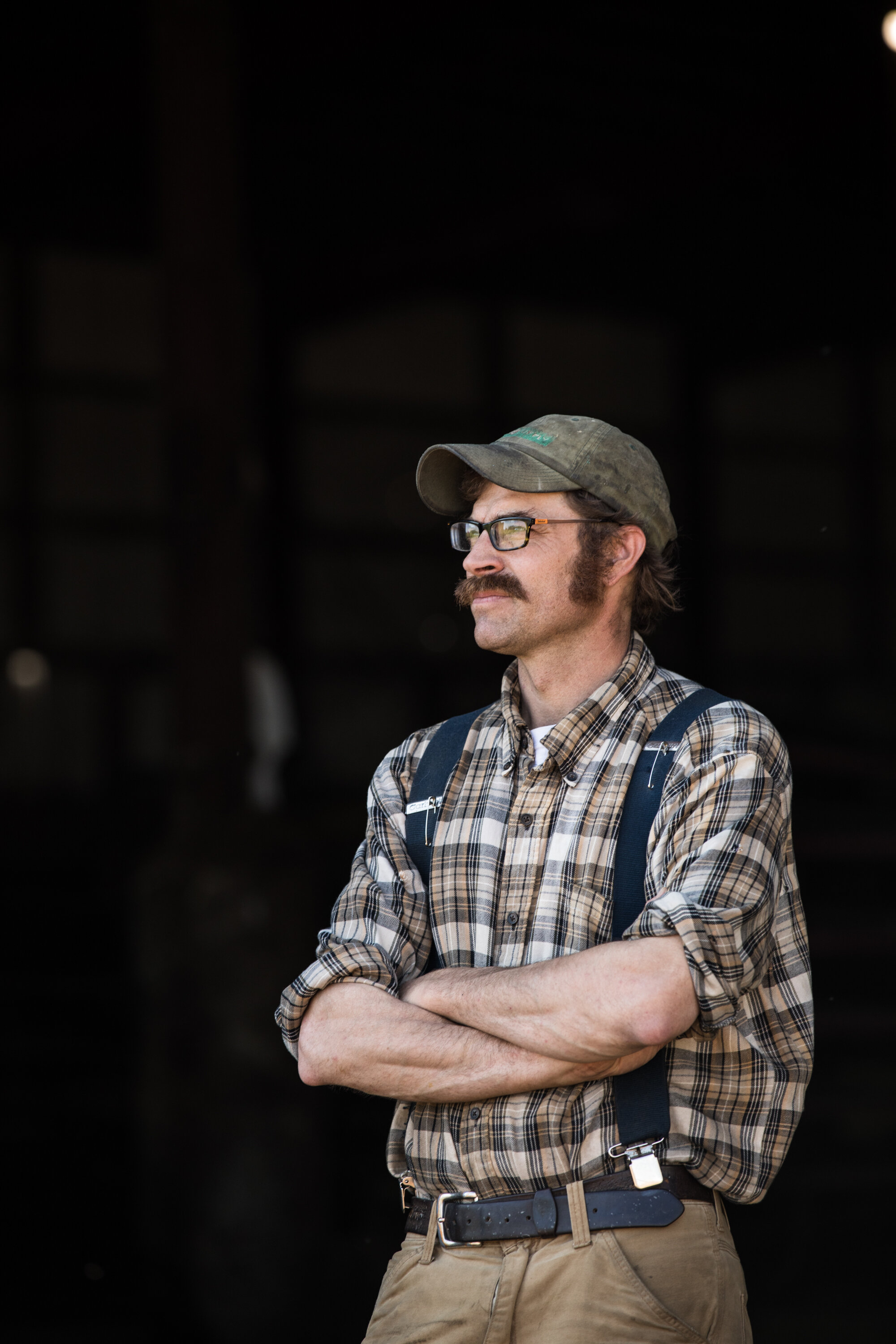
Aaron Bell, Tide Mill Farm in Edmunds, Maine
“You can't just stop making milk because the price is low and wait ‘til the price is high to make milk again. That's the ultimate challenge of dairy. We're at the end of the road; we're 150 miles from the next closest farm, 150 miles one way, that Horizon even picks up. So Horizon drives 150 miles, picks us up and my two neighbors when they were milking, and then would drive 150 miles for sometimes tiny amounts of milk. I can see why it didn't make economic sense for them. It's just a tough area, I mean Washington County is not a good area to rely on a major milk processor in New York and Massachusetts.”
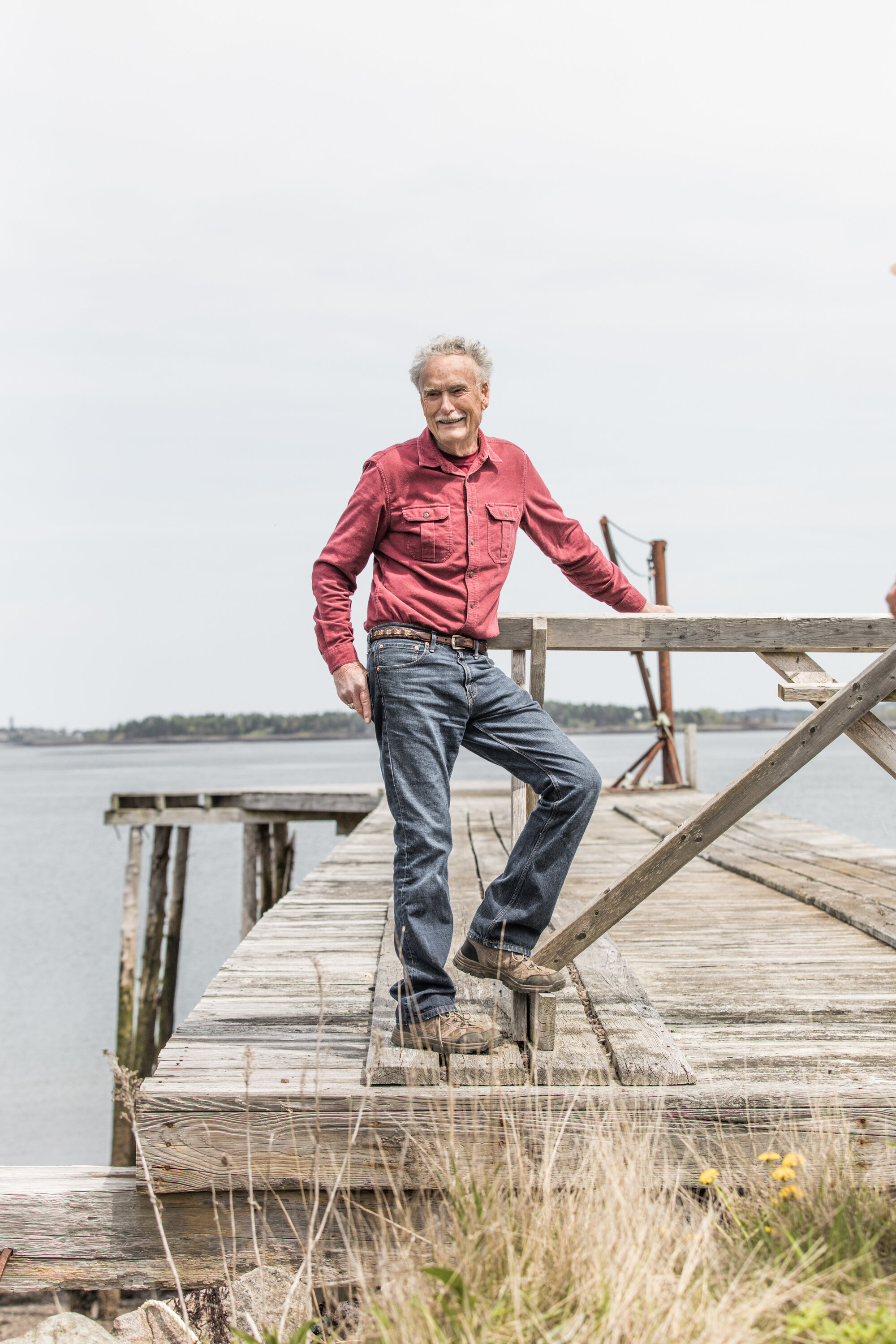
Wendell Small, North Lubec
“We’re just comin’ from a dive just off this pier a hundred yards out in the water. High tide, under a pen of salmon, gettin’ the best of urchins. Their row was as orange as an orange. They were plentiful.
There’s three rivers that run into that area. When that tide changes there’s three rivers forcing the water making it quite treacherous. We’re in the big boat and there’s another pen down towards Lubec and the waves were eight and ten feet and we were full of urchins. And we’d go up, right straight in the air, and we’d go down and it’d be right black. And I said, “David, are we all right?” He said, “Look reach out back there and get that bag back there on that bench.” I said, “What is this, David” He said, “It’s my lunch.” I said, “David! We’re gonna die, and you’re gonna eat a lunch?” And he said, “Yup, and I’m gonna have a full belly!”
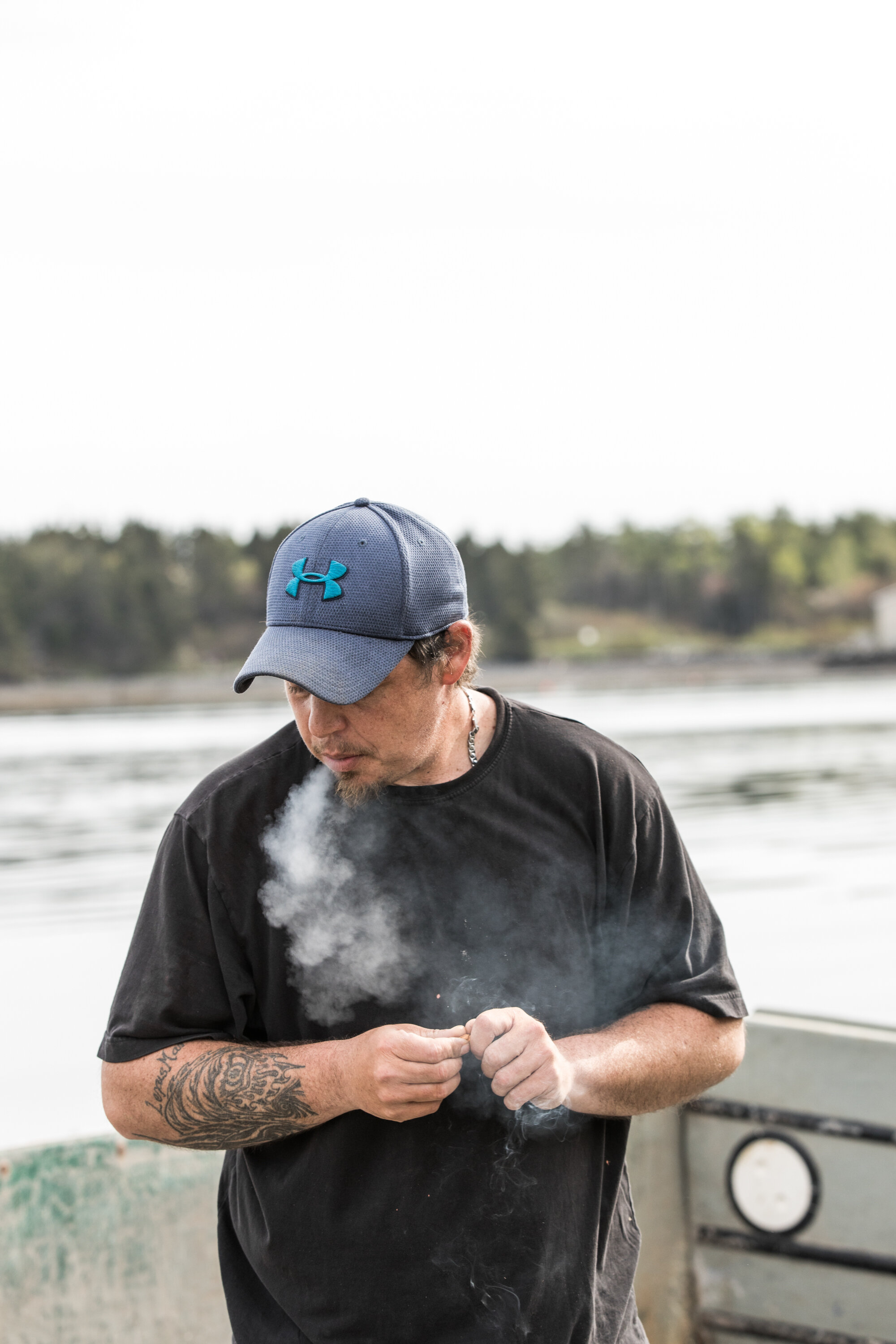
Justin Right, F/V Two Girls, Lubec, Maine
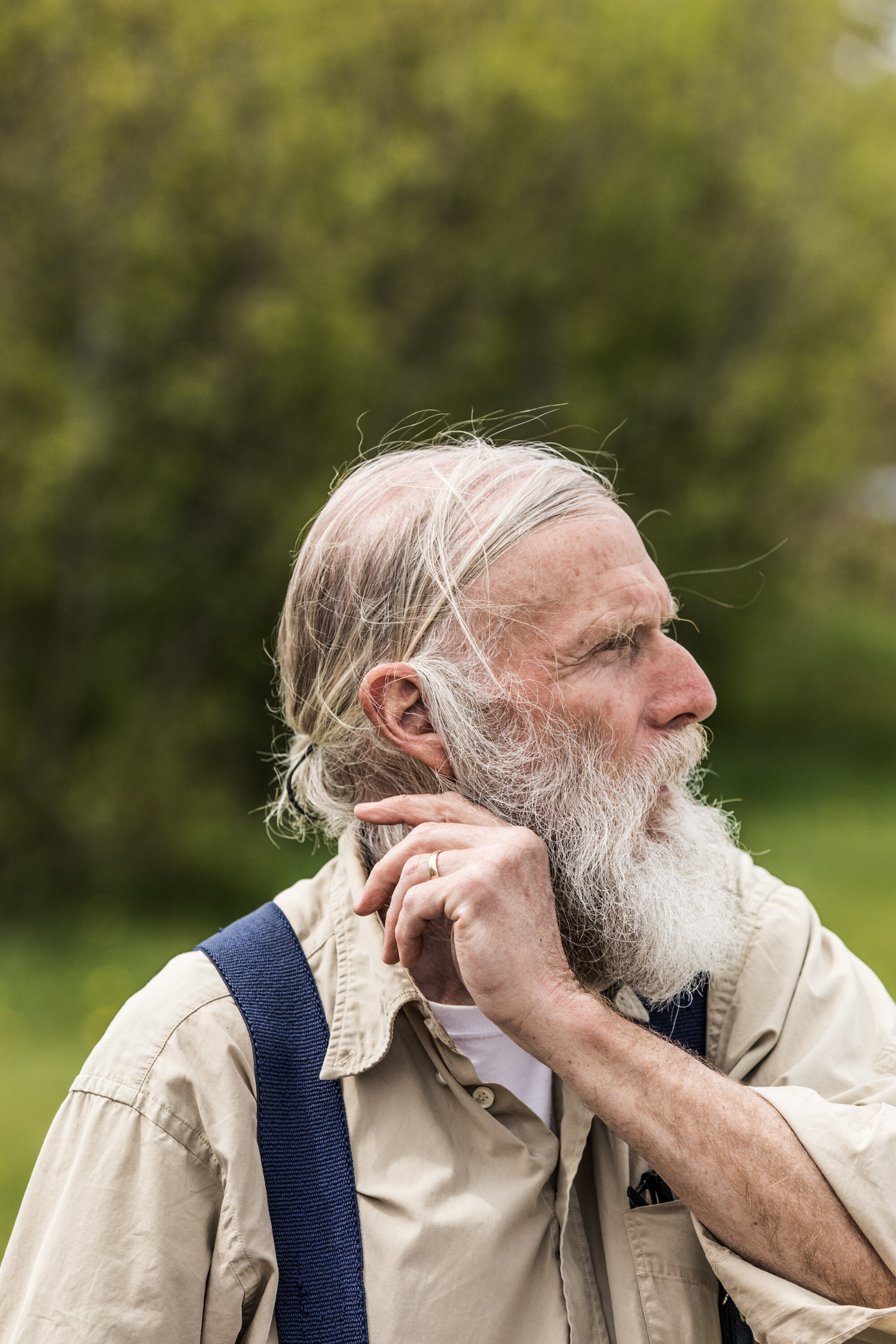
Alba Briggs, North Lubec, Maine
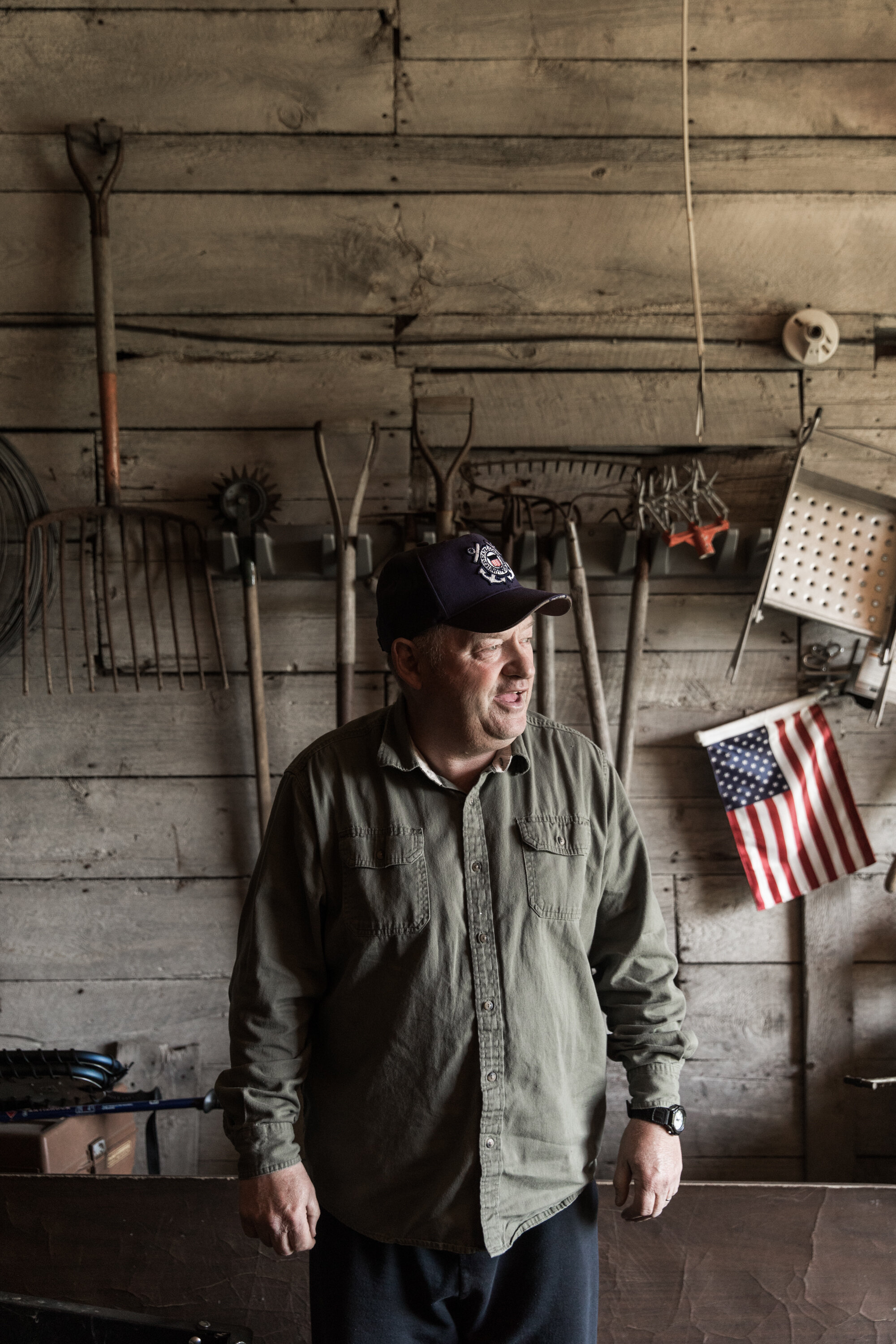
Bubba Eaton on his duty as lighthouse keeper at West Quoddy Head, 1978 - 1982
“Growing up nothing happened to me where I would believe that there were ghosts. My thing was when I was down on West Quoddy Head, when that happened I believed it. It was one of them experiences you never forget… I really felt a presence there, I could feel that. There is always somebody there. I had all the lights on and I had a gun and knife and everything else down there. I used to drink Coke… to keep myself awake but, if I lay down, believe me the place was lit up. I'd rather see somebody, you know, if the place was lit up, I'd rather see 'em. I don't shut my eyes.”
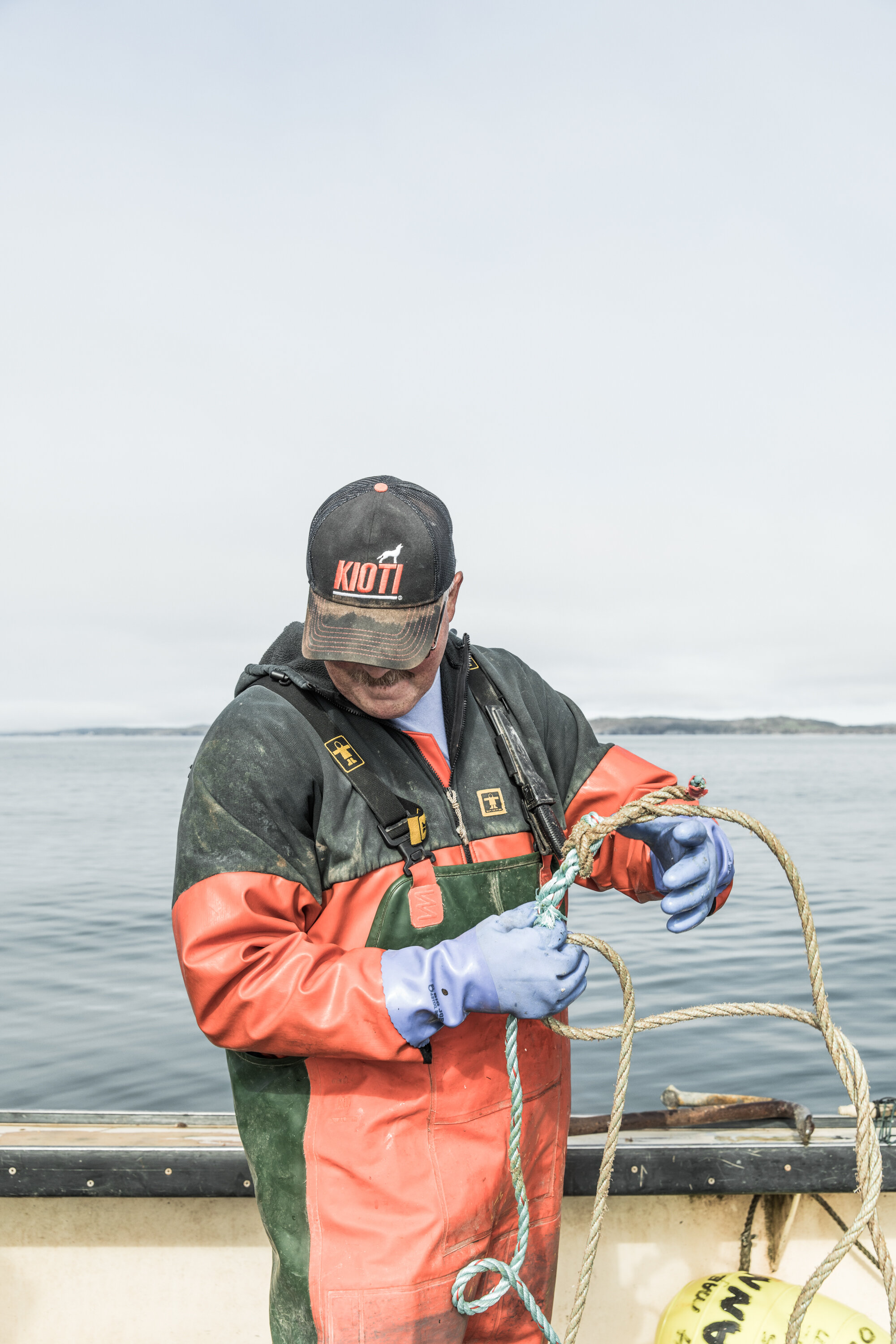
Howie Robbins, Halibut Fishing
“Everyone’s starting to get gear down now. We fish trawls up here. There’s too many Grand Manan-ers fishing in the gray zone now, they got big boats, big gear, it’s hard to handle. You can’t compete, you know? I don’t want to go out there and fight and chew, it ain’t worth it. I can actually fish in Canada, my mother was from St. Johns, Newfoundland.”
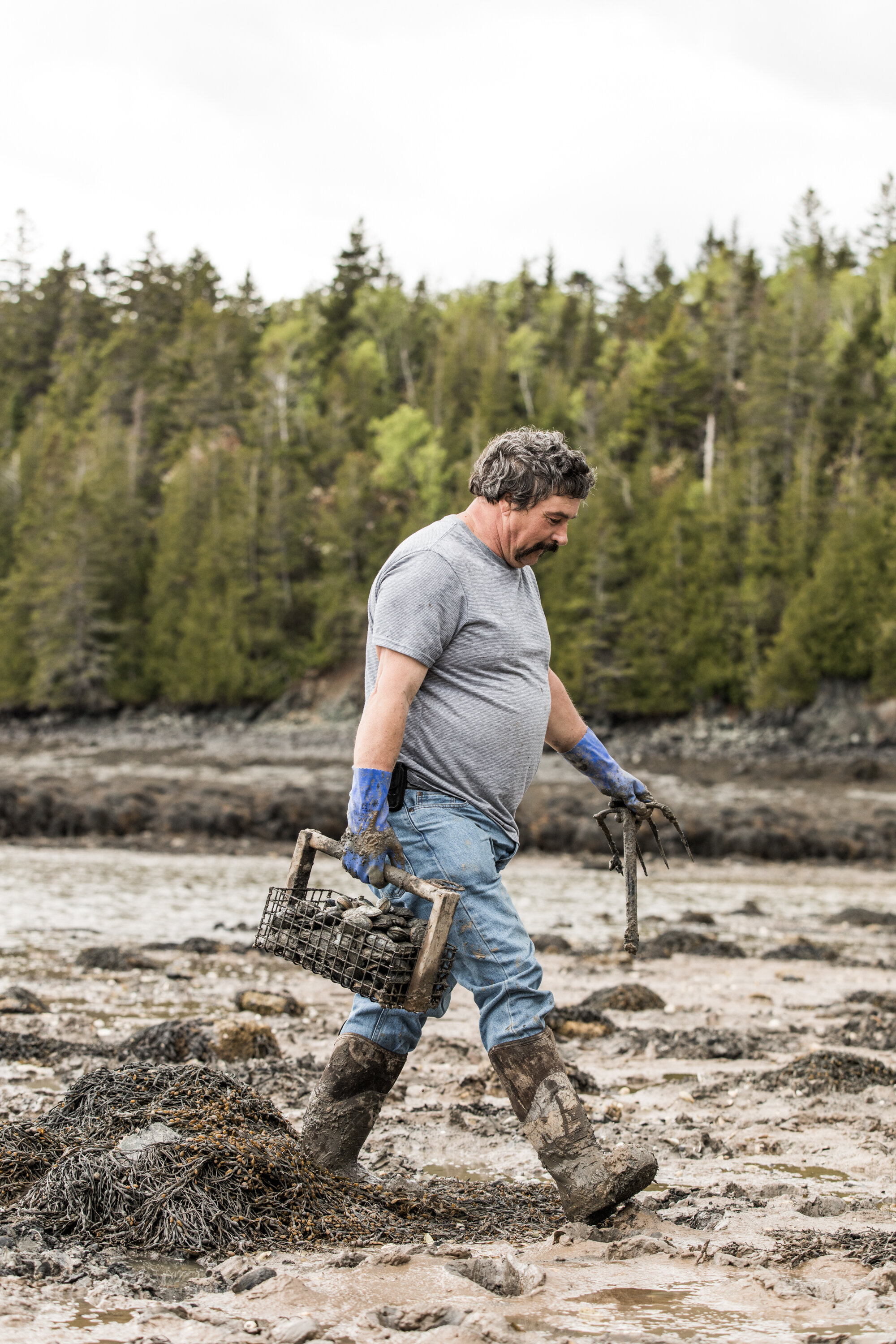
Dave Brown, Clamming in North Lubec
“I always go back to digging clams… You're your own boss, there's nobody to bother you. Of course, the hours change, the tide changes an hour a day so as the set tides it gets later and later in the day, right?
I started doing clams in Canada but I started sea urchins over here. Back then I was tending divers… you could pick your days, you didn't have to go because you could go every day. You have cold, sub-zero, no you didn't go. Gave a lot of wind? You didn't have to go, but now you do. Around here there's no safe harbor, we don't have government wharfs like they have in Campobello, we don't have big wharfs to tie to like in Bar Harbor and places.. We have to get in a little boat and get out to our big boat. If the wind's blowing it can be dangerous, people have lost their lives doing it. The state says this is the day you go, you try to get to your boat.”
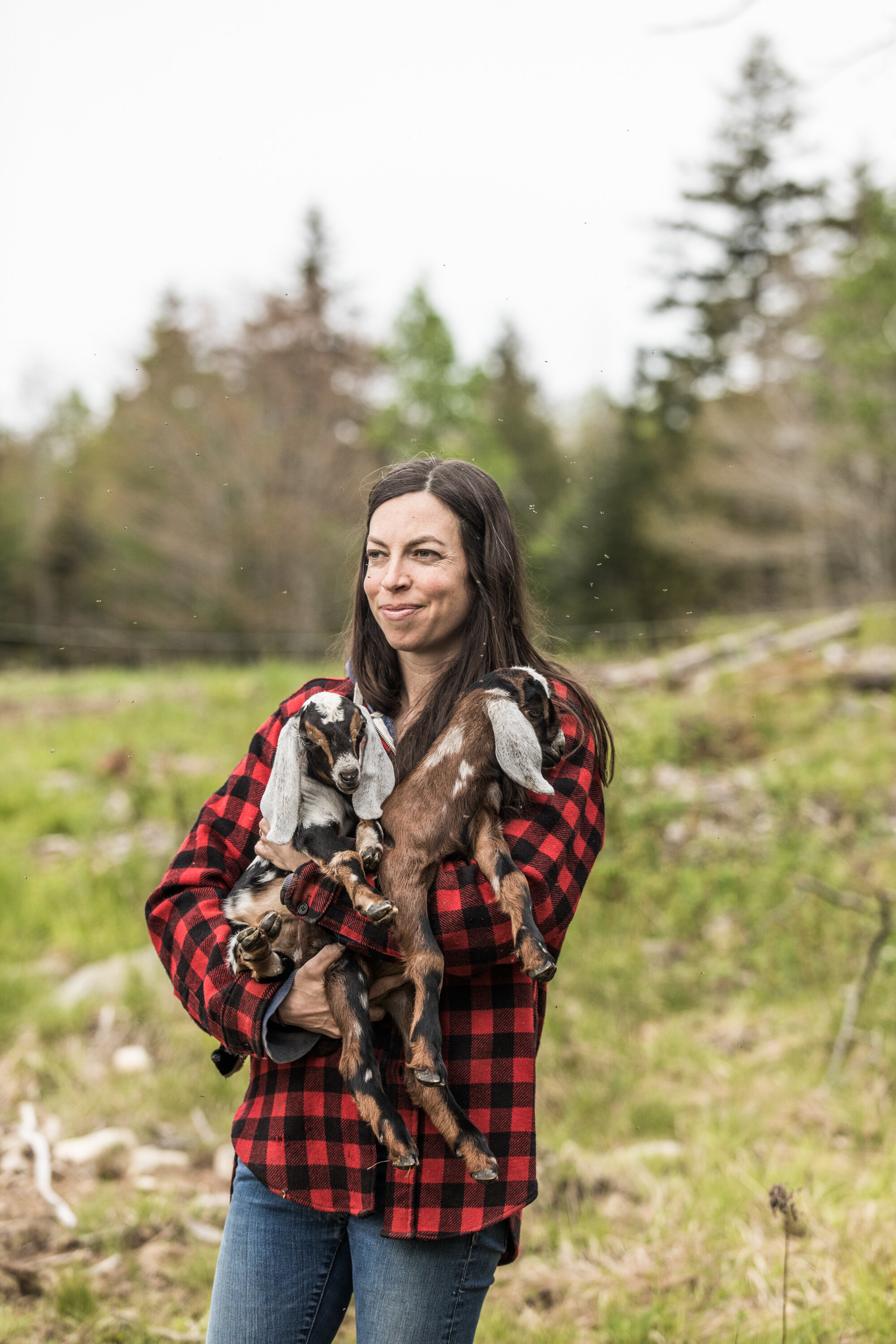
Rachel Bell, Tide Mill Creamery, Edmunds
“I feel like it's really easy to fall in and out of love with what I do depending on how hard my day has been. But always the goats make me fall in love with what I'm doing. Just being in their presence and their personalities and their desire for affection and their curiosity, it's really special to be with them. I think it both lifts my spirits when I need that but it also brings me right into the present moment.”
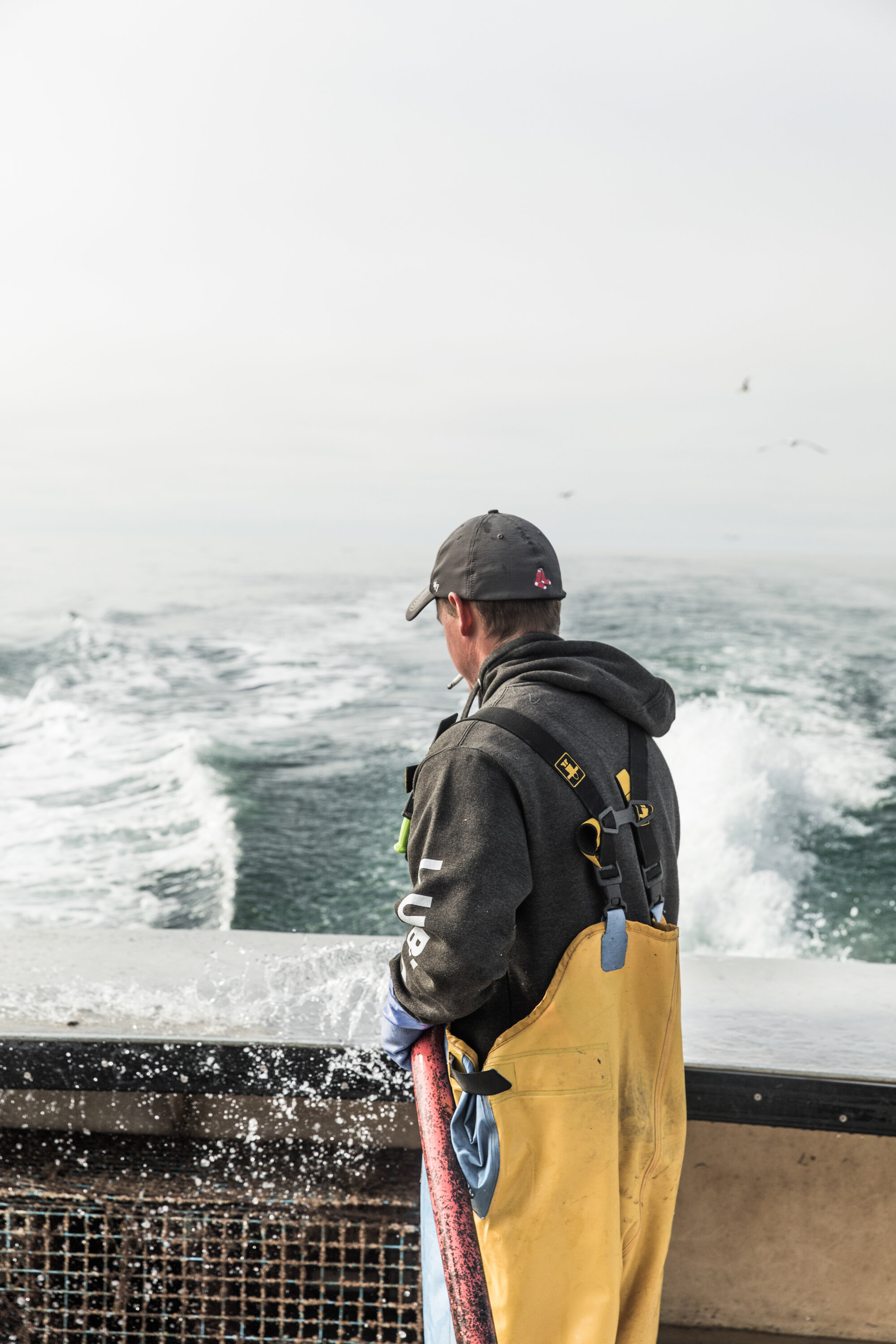
Jake (last name) halibut fishing
“We gotta go catch the slack. Hauling halibut you have to haul it on a slack so there isn't so much tide fightin' the fish. It’s hard bottom in here, that’s why I fish it. It’s a weird fishery, trying to figure out where they are and what they’re feeding on. I've noticed in the past three years, middle of June, they shut right off. I don't know if they move or... I've tried everything.”
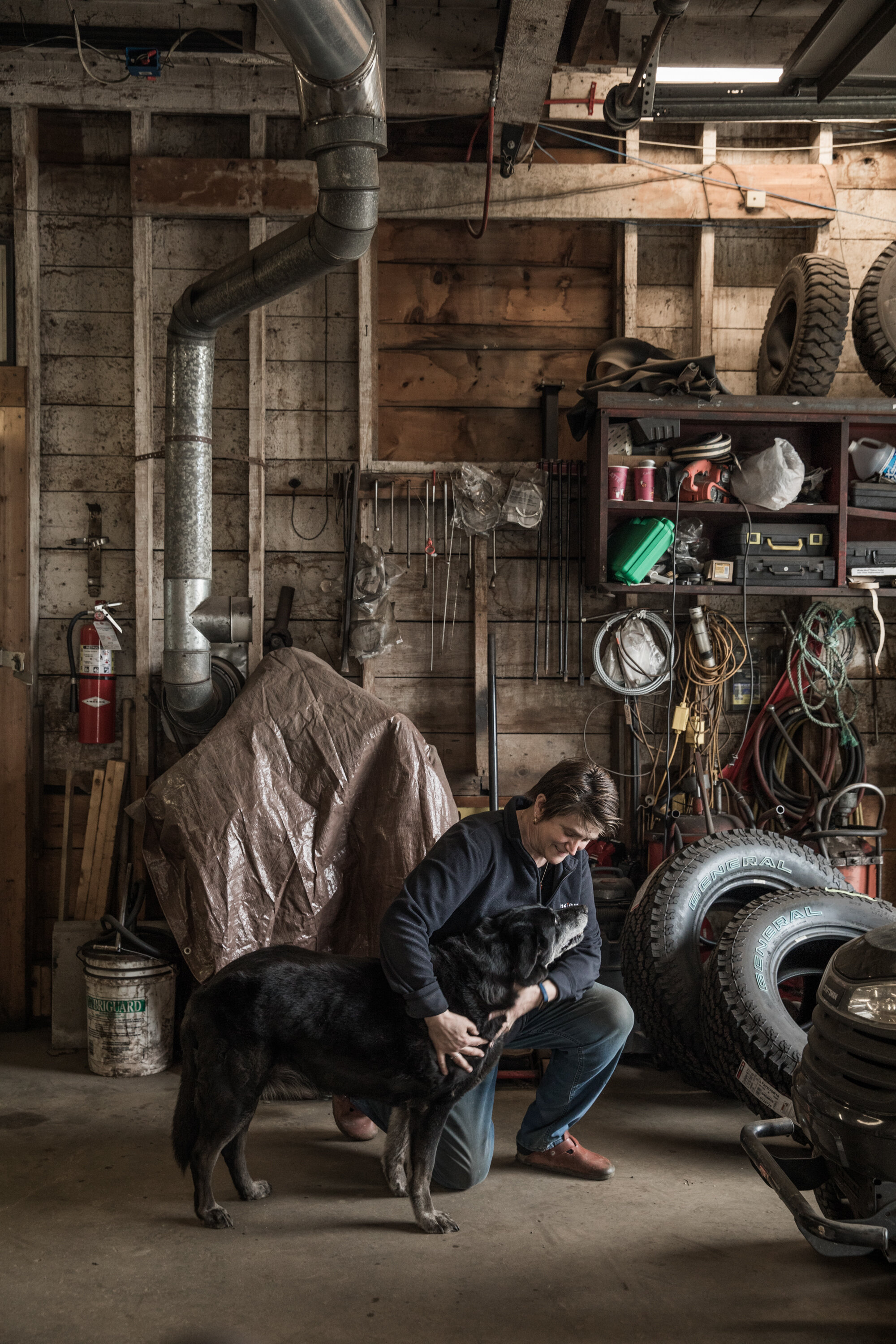
Shelly Tinker, Corey + Corey Automotive
“When I was younger I'd walk up to the edge of the ocean and go, “There's a whole world, right there! We gotta take advantage of this somehow, there's so much to see and so little to do in this town.” That's how I got into [diving] in the first place...
[There] was a juvenile minke whale in a weir, I cry everytime I tell this story... I've told it a lot and I still cry. But he was in there, following the herring… I had my back up against the weir stake so it would go by me and out through the weir. Watching the herring from underneath and the light shining through and the circles of the silver, it was so beautiful. At one point the whale came through them and I went, "Holy shit." It opened up like a big donut, this hole, and then the whale come through and I was like, "Oh my god, I've just seen the most beautiful thing in the world."
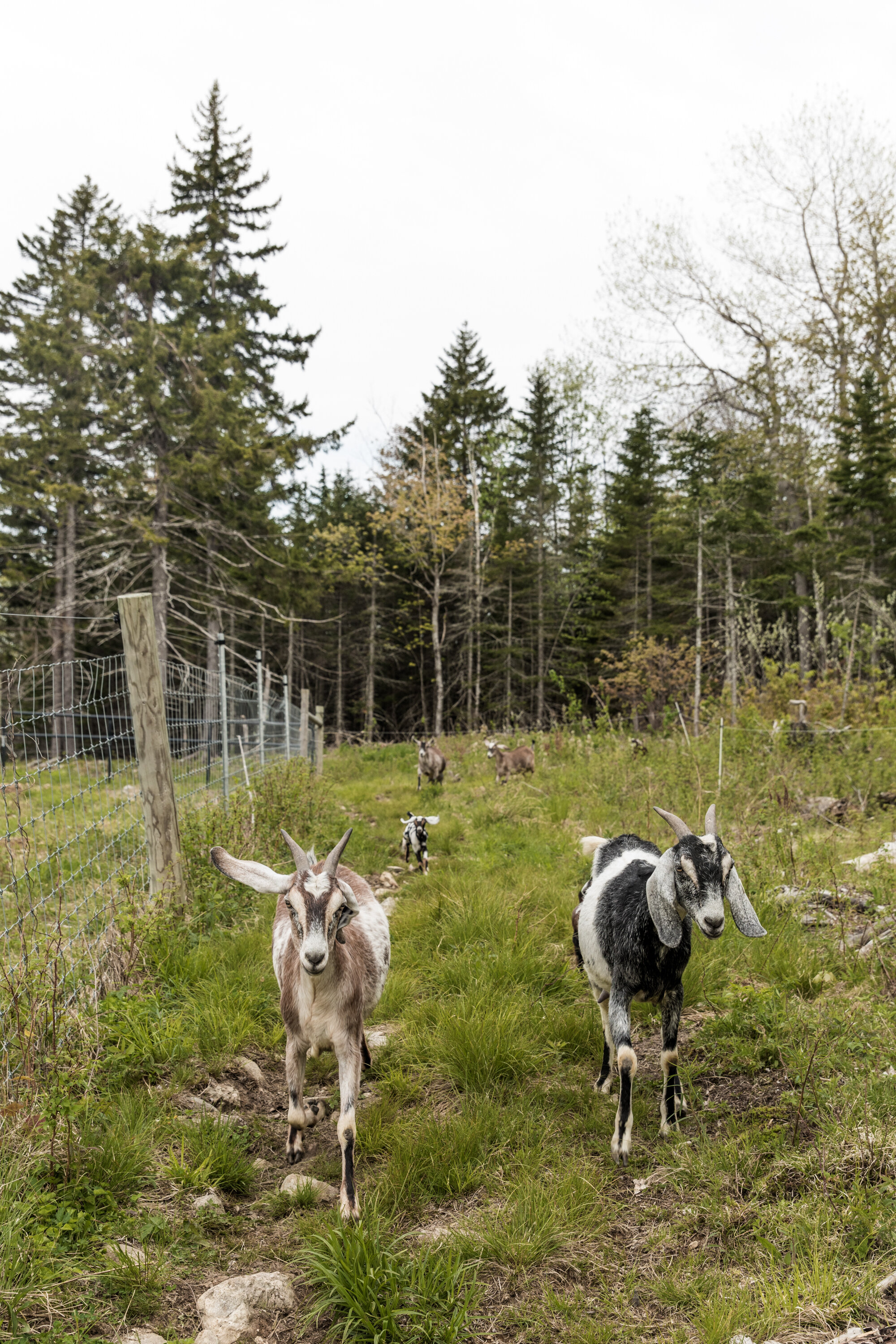
“Maine people are close to the earth and to the seasons. Maine still has a strong resource-based economy, there's this acknowledgment that making a living connected to nature and resources like fishing or farming or the forest that's really honored in this state as a traditional way of making a living. People in Maine want to see those livelihoods continue in the future.”
Rachel Bell, Edmunds
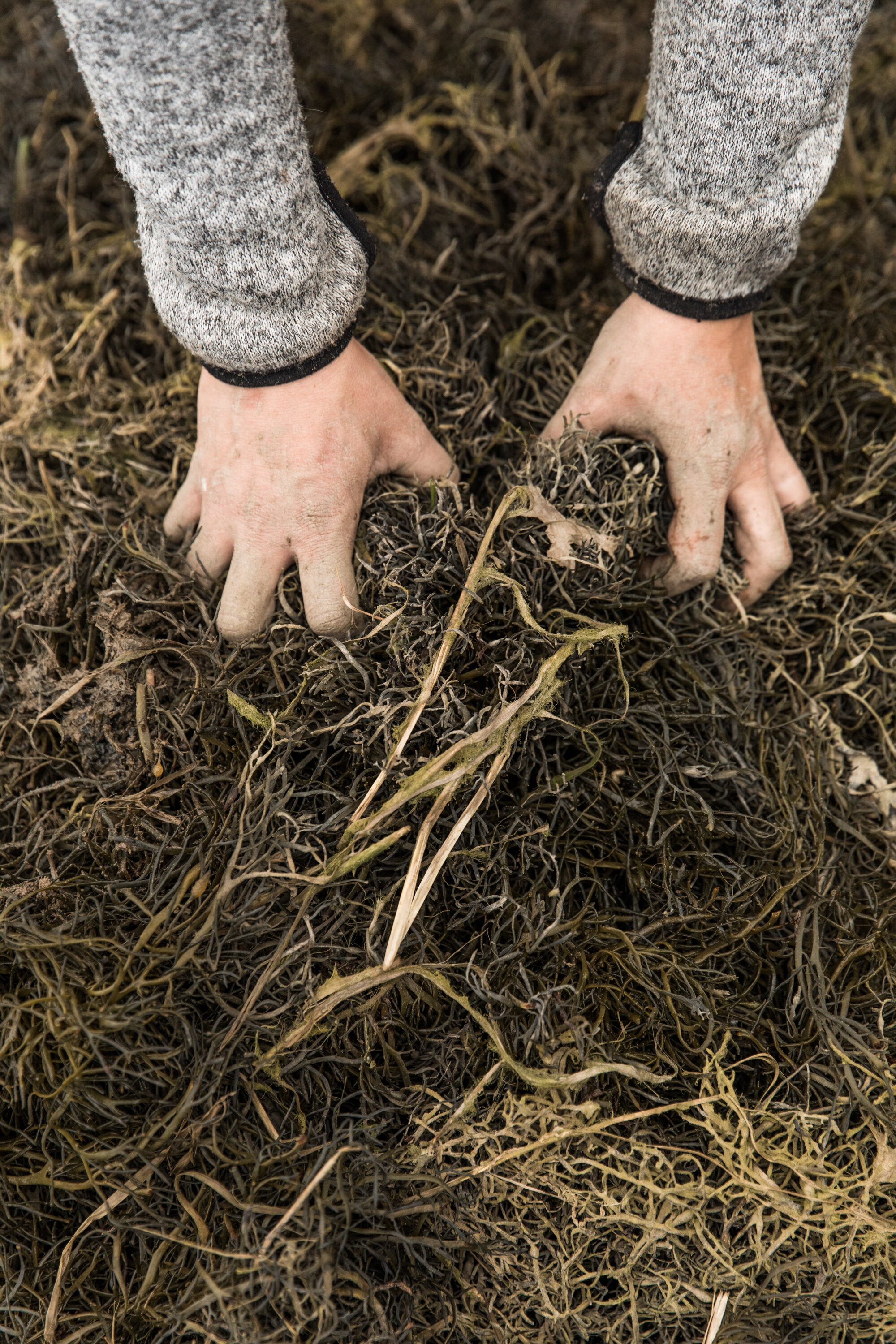
“Maine people are close to the earth and to the seasons. Maine still has a strong resource-based economy, there's this acknowledgment that making a living connected to nature and resources like fishing or farming or the forest that's really honored in this state as a traditional way of making a living. People in Maine want to see those livelihoods continue in the future.”
Rachel Bell, Edmunds
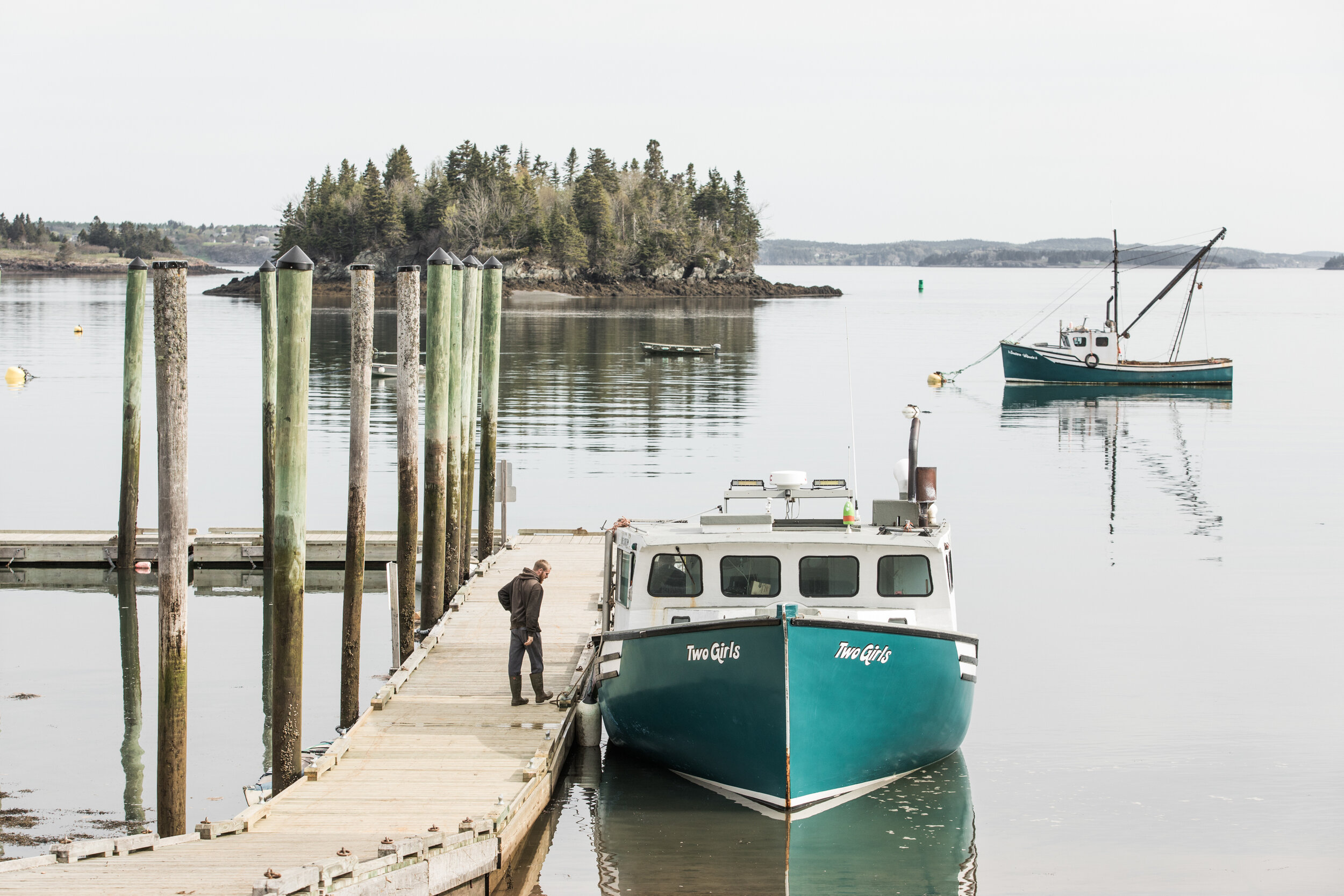
“I'd like to see our kids be able to stay here if they wanted to, I don't want to have to bring 'em up to see 'em move. You see the same thing all my life growing up, things come and things go. They stay for awhile and then they're gone. A restaurant will open for four or five years and then it's gone. I'm gonna stay right here as long as I can! We're all set as long as I have a little food and that sunset!”
Sharon McGonagil, Lubec, Maine
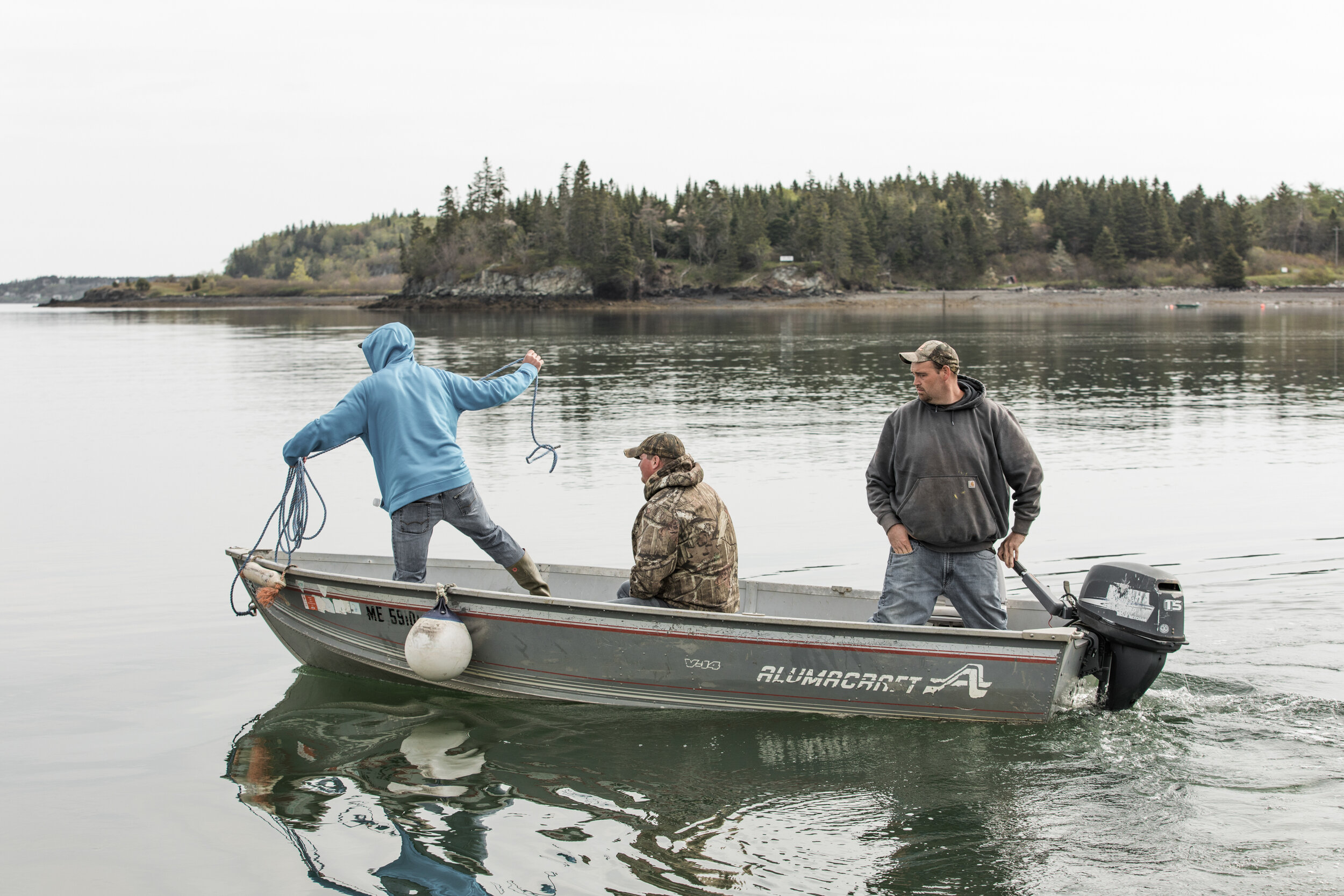
“I'd like to see our kids be able to stay here if they wanted to, I don't want to have to bring 'em up to see 'em move. You see the same thing all my life growing up, things come and things go. They stay for awhile and then they're gone. A restaurant will open for four or five years and then it's gone. I'm gonna stay right here as long as I can! We're all set as long as I have a little food and that sunset!”
Sharon McGonagil, Lubec, Maine
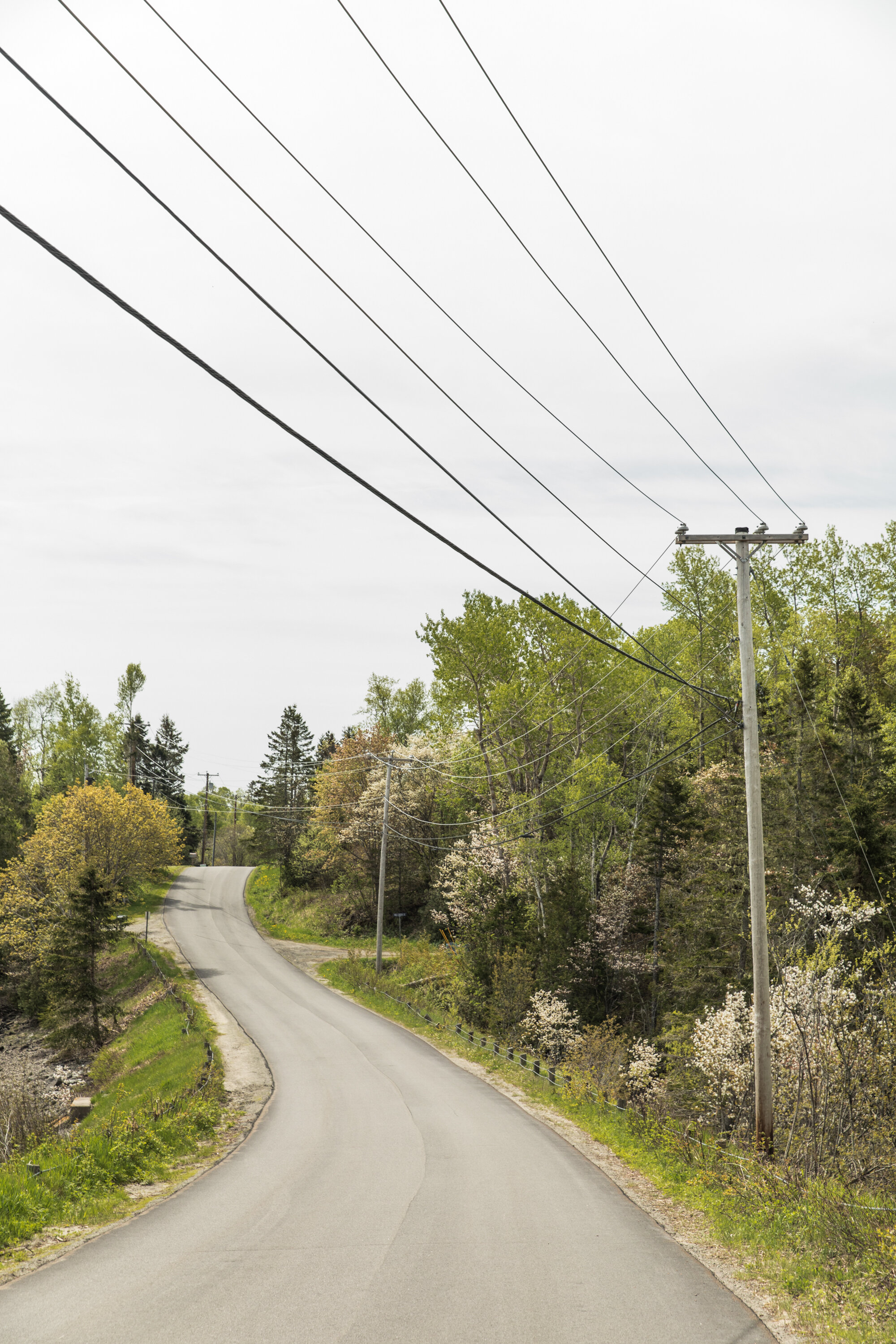
“I think Lubec is on the mend, we're going to become a little tourist town. The factory's are gone, the only thing we got left is a little bit of fishing and we're on the mend, we're building back up again. We had junk shops and restaurants, hotels, motels, I might never see it, but it's coming. We're gonna be a little Bar Harbor.”
Willy Corey, Lubec, Maine
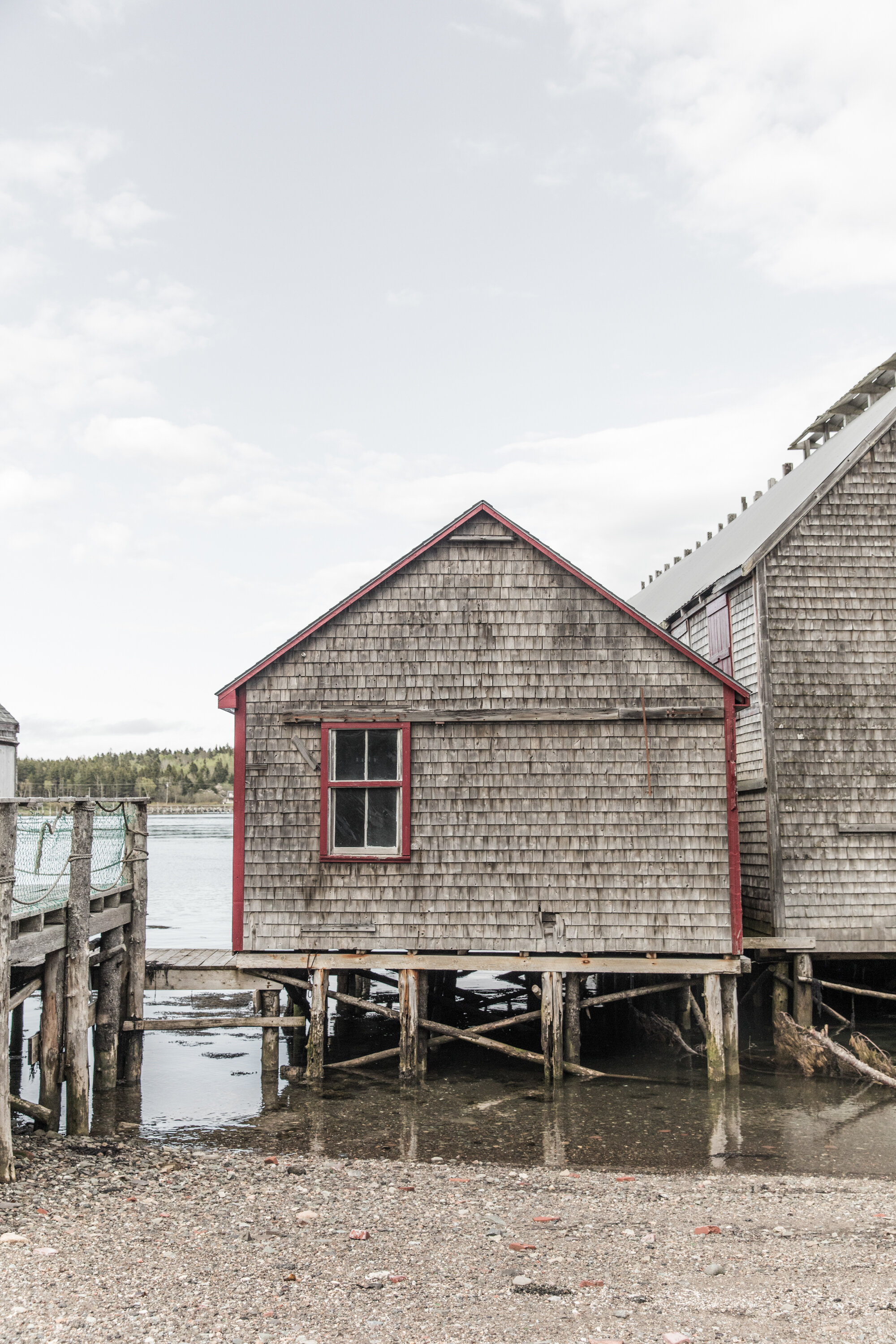
“I think Lubec is on the mend, we're going to become a little tourist town. The factory's are gone, the only thing we got left is a little bit of fishing and we're on the mend, we're building back up again. We had junk shops and restaurants, hotels, motels, I might never see it, but it's coming. We're gonna be a little Bar Harbor.”
Willy Corey, Lubec, Maine
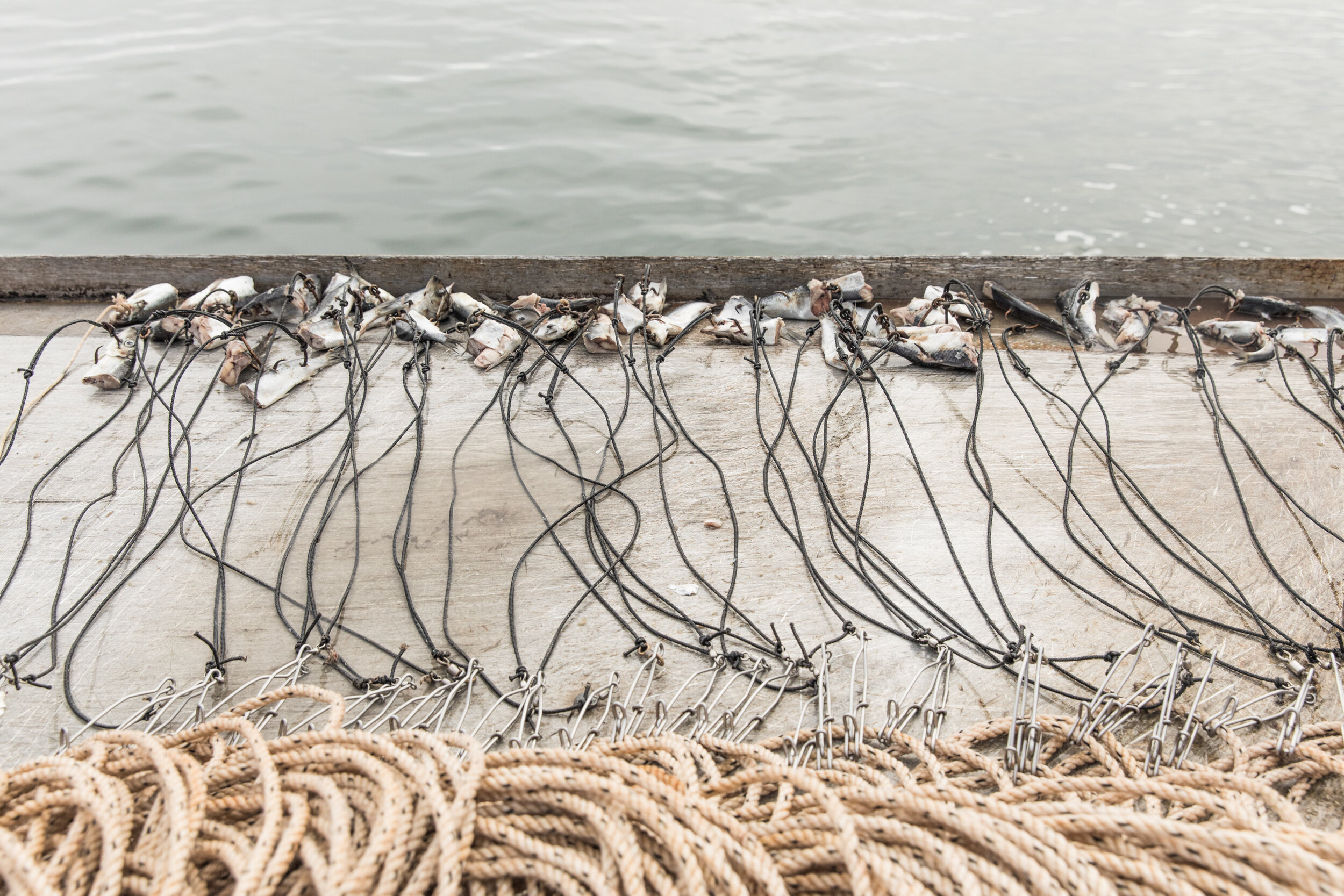
“The only thing here, really, is your tourist season. You got a few restaurants that hire a few people minimum wage. We used to have factories, we used to have a lot of jobs in Lubec but I don't know... Lubec's always gonna be here. The question is who's gonna be livin' in it?”
Dave Brown, Lubec, Maine
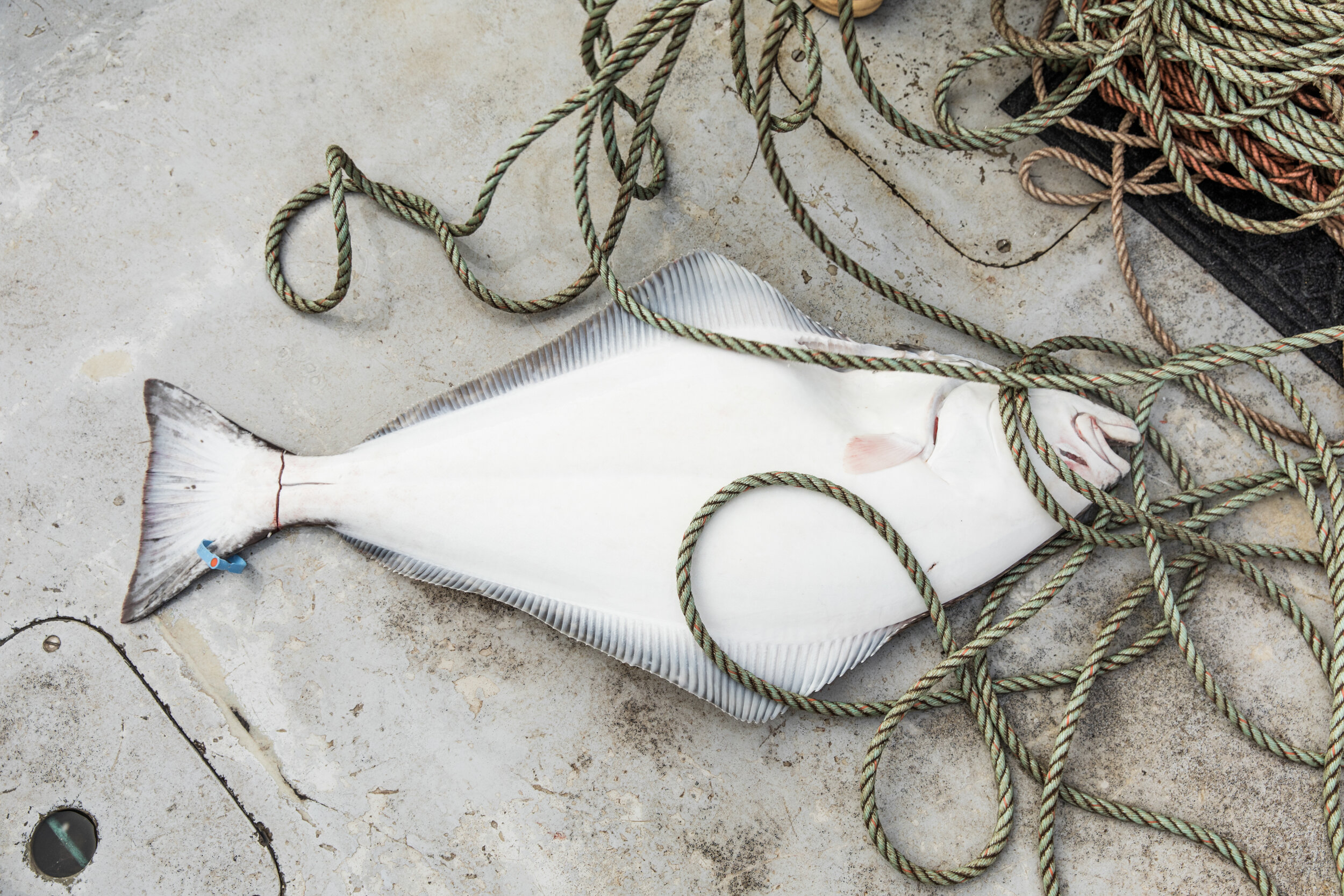
“The only thing here, really, is your tourist season. You got a few restaurants that hire a few people minimum wage. We used to have factories, we used to have a lot of jobs in Lubec but I don't know... Lubec's always gonna be here. The question is who's gonna be livin' in it?”
Dave Brown, Lubec, Maine




























To hear audio excerpts, simply click on the photo above.
To hear the audio excerpts playlist or the Lubec Soundwalk, simply click the buttons below!
All photographs by Greta Rybus, audio and soundwalk by Galen Koch. All rights reserved © 2019.
Special thanks to all the participants, interviewees, and the community of Lubec.
